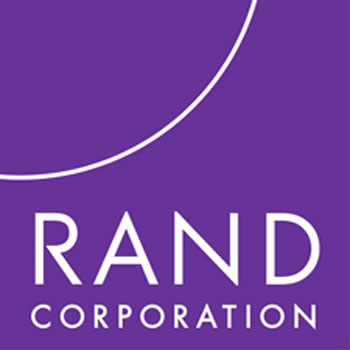|
A large segment of the Iraqi population regards the MeK with antipathy because of widely held perceptions that the group acted as Saddam’s “private army,” working on his behalf to help suppress the Shia and Kurdish uprisings after the first Gulf War and to provide security in the areas around the MeK camps. |

Chapter Three
Options for Relocating the MeK
Both Iraq and the United States have publicly stated that their goal is to remove the MeK from Iraq. According to the Geneva Conventions, when detainees are released, they may be
• reestablished in their country of residence prior to detention
• resettled or “accommodated” in third or neutral countries
• repatriated to the country of their nationality.
The most common dispositions are reestablishment or repatriation. However, in some cases, neither option may be possible because a detainee has a well-founded fear, or would face a real risk, of persecution or threats to personal security—including torture or loss of life—as a result of his or her race, religion, nationality, political opinions, or membership in a particular social group. In international humanitarian law, human rights law, and refugee law, forced deportation of individuals facing persecution is forbidden under the principle known as nonrefoulement (derived from the French verb refouler, which means “to drive back”).1 Although the Geneva Conventions mandate prompt release of detainees at the end of an occupation, for detainees whose situation triggers nonrefoulement protections because of their political or religious beliefs, the conventions allow continuing detention and Geneva Convention protections (including regular review of the necessity of detention) until a satisfactory disposition is arranged. In the case of the MeK, however, there has been no agreement on how to answer the fundamental question: Where can they go?
Option 1: Reestablishing the MeK in Iraq
Because the MeK members now at Camp Ashraf were living in Iraq when coalition forces invaded the country in 2003, the first option—reestablishing them in their country of residence—means allowing them to remain in Iraq. However, this has not been considered feasible for several reasons. First, when Saddam invited the MeK to Iraq, he did not grant its members legal residency, nor did they seek to become legal residents or citizens, though the MeK now asserts that it is legally present in Iraq. The GOI has indicated that it has no intention of legalizing the members’ status.
Second, U.S. officials fear that the MeK faces persecution from Iraqis or physical danger from Iranian agents. A large segment of the Iraqi population regards the MeK with antipathy because of widely held perceptions that the group acted as Saddam’s “private army,” working on his behalf to help suppress the Shia and Kurdish uprisings after the first Gulf War and to provide security in the areas around the MeK camps.2 Indeed, a primary function of placing coalition troops near Camp Ashraf was to protect the MeK from possible retribution from Iraqi forces and Iranian agents.
Third, in a December 2003 resolution, the Iraqi Governing Council explicitly called for the ejection of the MeK, and Iraqi officials continue to take that position. Nevertheless, despite ongoing vows to deport the MeK and shut down the camp when the 2009 transfer of power took place, in December 2008, the GOI provided written assurances to Washington that, when Iraqi security forces took responsibility for Camp Ashraf, the MeK would be treated humanely and that MeK members would not be forcibly transferred to a country where they might face persecution. The guarantee will allow Washington to work with Baghdad and with such organizations as the ICRC “to find a humanitarian solution for the camp occupants.”3 In conjunction with these efforts, the JIATF will oversee the transition and provide guidance to Iraqi security forces.4
1 Specific nonrefoulement provisions vary among treaties, with some focusing on risk of persecution (e.g., the Geneva Conventions and the Convention Against Torture) and others focusing on the fear of persecution (e.g., the 1951 Refugee Convention). The Fourth Geneva Convention is narrower than others insofar as it limits the basis of persecution to political opinion or religious beliefs, but it is wider in that it would bar transfer for protected person who “may have reason to fear persecution” (Article 45), not just those with a well-founded fear of persecution or those for whom substantial grounds exist for believing that they are likely to be persecuted. Commentators argue that the risk should be significant. The U.S. government observes nonrefoulement as a matter of policy—one that applies only to individuals within the United States—rather than as a legal requirement (interviews with DOS attorneys, October 2007 and February 2008).
2 Since its consolidation at Camp Ashraf, the MeK has sometimes stated that it enjoys wide popularity among Iraqis. For instance, the MeK publicized a petition that allegedly contained the signatures of 5.2 million Iraqis who proclaimed their support for the MeK. It turned out that the petition was a fraud; it contained falsified signatures (interview with a DOS official, October 2007).
3 “US Has Assurances from Iraq on Iranian Rebels: Official,” 2008.
4 Diplomatic assurances are a controversial means of ensuring nonrefoulement protections. Human rights groups typically find them to be inadequate to protect against persecution (Chesney, 2006, p. 695; Deeks, 2008, pp. 43–47). DOS typically prefers to avoid the use of diplomatic assurances, particularly nonwritten assurances (interviews with DOS attorneys, October 2007 and February 2008).
